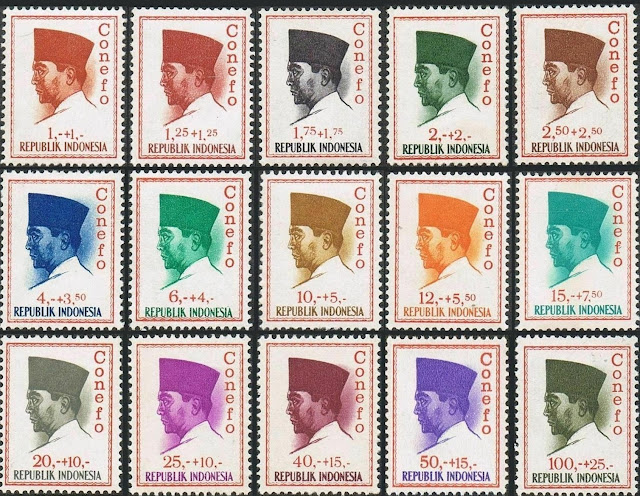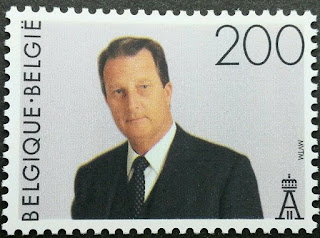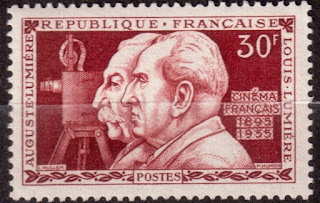1859 – Australia: Queensland is established as a separate colony from New South Wales (Queensland Day).
Queensland (abbreviated as Qld) is a state of Australia. It is the second-largest and third-most populous Australian state. Situated in the north-east of the country, it is bordered by the Northern Territory, South Australia and New South Wales to the west, south-west and south respectively. To the east, Queensland is bordered by the Coral Sea and Pacific Ocean. To its north is the Torres Strait, separating the Australian mainland from Papua New Guinea. The state is the world's sixth-largest sub-national entity, with an area of 1,852,642 square kilometres (715,309 sq mi). Due to its size, Queensland's geographical features and climates are diverse, including tropical rainforests, rivers, coral reefs, mountain ranges and sandy beaches in its tropical and sub-tropical coastal regions, as well as deserts and savanna in the semi-arid and desert climactic regions of its interior.
Queensland was first inhabited by Aboriginal Australians and Torres Strait Islanders. Dutch navigator Willem Janszoon, the first European to land in Australia, explored the west coast of the Cape York Peninsula in 1606. In 1770, James Cook claimed the east coast of Australia for the Kingdom of Great Britain. In 1788, Arthur Phillip founded the colony of New South Wales, which included all of what is now Queensland. Queensland was explored in subsequent decades, and the Moreton Bay Penal Settlement was established at Brisbane in 1824 by John Oxley. Penal transportation ceased in 1839 and free settlement was permitted from 1842.
Queensland was separated from New South Wales on 6 June 1859 (now commemorated as Queensland Day), thereby establishing Queensland as a Crown colony with responsible government, named in honour of Queen Victoria. Queensland was among the six colonies which became the founding states of Australia with Federation on 1 January 1901. During World War II, Brisbane played a role in the Allied campaign, serving as the South West Pacific headquarters for United States Army General Douglas MacArthur.
Queensland stamps depicting Queen Victoria
1881 Died: Henri Vieuxtemps, Belgian violinist and composer (b. 1820)
Henri François Joseph Vieuxtemps (17 February 1820 – 6 June 1881) was a Belgian composer and violinist. He occupies an important place in the history of the violin as a prominent exponent of the Franco-Belgian violin school during the mid-19th century. He is also known for playing upon what is now known as the Vieuxtemps Guarneri del Gesù, a violin of superior workmanship.
Belgian stamp depicting Henri Vieuxtemps
1901 Born: Sukarno, Indonesian engineer and politician, 1st President of Indonesia (d. 1970)
Sukarno (born Kusno Sosrodihardjo; 6 June 1901 – 21 June 1970) was an Indonesian politician who was the first president of Indonesia, serving from 1945 to 1967.
Sukarno was the leader of the Indonesian struggle for independence from the Dutch Empire. He was a prominent leader of Indonesia's nationalist movement during the Dutch colonial period and spent over a decade under Dutch detention until released by the invading Japanese forces in World War II. Sukarno and his fellow nationalists collaborated to garner support for the Japanese war effort from the population, in exchange for Japanese aid in spreading nationalist ideas. Upon Japanese surrender, Sukarno and Mohammad Hatta declared Indonesian independence on 17 August 1945, and Sukarno was appointed as its president. He led Indonesians in resisting Dutch re-colonisation efforts via diplomatic and military means until the Dutch recognition of Indonesian independence in 1949. Author Pramoedya Ananta Toer once wrote, "Sukarno was the only Asian leader of the modern era able to unify people of such differing ethnic, cultural and religious backgrounds without shedding a drop of blood."
After a chaotic period of parliamentary democracy, Sukarno established an autocratic system called "Guided Democracy" in 1959 that successfully ended the instability and rebellions which were threatening the survival of the diverse and fractious country. The early 1960s saw Sukarno veering Indonesia to the left by providing support and protection to the Communist Party of Indonesia (PKI) to the irritation of the military and Islamists. He also embarked on a series of aggressive foreign policies under the rubric of anti-imperialism, with aid from the Soviet Union and China. The failure of the 30 September Movement in 1965 led to the destruction of the PKI with executions of its members and sympathisers in several massacres, with an estimated 500,000 to 1,000,000 dead. He was replaced in 1967 by one of his generals, Suharto, and remained under house arrest until his death in 1970.
Indonesian stamps depicting Sukarno
1934 Born: Albert II of Belgium
Albert II (French: Albert Félix Humbert Théodore Christian Eugène Marie; Dutch: Albert Felix Humbert Theodoor Christiaan Eugène Marie, born 6 June 1934) reigned as King of the Belgians, from 1993 until his abdication in 2013.
King Albert II is the last living child of King Leopold III and Queen Astrid, born princess of Sweden. He is the younger brother of Grand Duchess Joséphine-Charlotte of Luxembourg and King Baudouin, whom he succeeded upon Baudouin's death in 1993. He married Donna Paola Ruffo di Calabria (now Queen Paola), with whom he had three children. Albert's eldest son, Philippe, is the current King of the Belgians.
On 3 July 2013, King Albert II attended a midday session of the Belgian cabinet. He then announced that, on 21 July, Belgian National Day, he would abdicate the throne for health reasons. He was succeeded by his son Philippe on 21 July 2013. Albert II was the fourth monarch to abdicate in 2013, following Pope Benedict XVI, Queen Beatrix of the Netherlands, and Emir Hamad bin Khalifa of Qatar. In so doing, he was also the second Belgian monarch to abdicate, following his father Leopold III who abdicated in 1951, albeit under very different circumstances.
Belgian stamps depicting Albert II
1948 Died: Louis Lumière, French director, producer, and screenwriter (b. 1864)
The Lumière brothers (Auguste Marie Louis Nicolas; 19 October 1862 – 10 April 1954) and Louis Jean (5 October 1864 – 7 June 1948), were among the first filmmakers in history. They patented an improved cinematograph, which in contrast to Thomas Edison's "peepshow" kinetoscope allowed simultaneous viewing by multiple parties.
When their father retired in 1892, the brothers began to create moving pictures. They patented several significant processes leading up to their film camera, most notably film perforations (originally implemented by Emile Reynaud) as a means of advancing the film through the camera and projector. The original cinématographe had been patented by Léon Guillaume Bouly on 12 February 1892. The brothers patented their own version on 13 February 1895. The first footage ever to be recorded using it was recorded on 19 March 1895. This first film shows workers leaving the Lumière factory.
The Lumière brothers saw film as a novelty and had withdrawn from the film business in 1905. They went on to develop the first practical photographic colour process, the Lumière Autochrome.
Louis died on 6 June 1948 and Auguste on 10 April 1954. They are buried in a family tomb in the New Guillotière Cemetery in Lyon.
French stamp depicting Auguste and Louis Lumière
Albert II (French: Albert Félix Humbert Théodore Christian Eugène Marie; Dutch: Albert Felix Humbert Theodoor Christiaan Eugène Marie, born 6 June 1934) reigned as King of the Belgians, from 1993 until his abdication in 2013.
King Albert II is the last living child of King Leopold III and Queen Astrid, born princess of Sweden. He is the younger brother of Grand Duchess Joséphine-Charlotte of Luxembourg and King Baudouin, whom he succeeded upon Baudouin's death in 1993. He married Donna Paola Ruffo di Calabria (now Queen Paola), with whom he had three children. Albert's eldest son, Philippe, is the current King of the Belgians.
On 3 July 2013, King Albert II attended a midday session of the Belgian cabinet. He then announced that, on 21 July, Belgian National Day, he would abdicate the throne for health reasons. He was succeeded by his son Philippe on 21 July 2013. Albert II was the fourth monarch to abdicate in 2013, following Pope Benedict XVI, Queen Beatrix of the Netherlands, and Emir Hamad bin Khalifa of Qatar. In so doing, he was also the second Belgian monarch to abdicate, following his father Leopold III who abdicated in 1951, albeit under very different circumstances.
Belgian stamps depicting Albert II
1948 Died: Louis Lumière, French director, producer, and screenwriter (b. 1864)
The Lumière brothers (Auguste Marie Louis Nicolas; 19 October 1862 – 10 April 1954) and Louis Jean (5 October 1864 – 7 June 1948), were among the first filmmakers in history. They patented an improved cinematograph, which in contrast to Thomas Edison's "peepshow" kinetoscope allowed simultaneous viewing by multiple parties.
When their father retired in 1892, the brothers began to create moving pictures. They patented several significant processes leading up to their film camera, most notably film perforations (originally implemented by Emile Reynaud) as a means of advancing the film through the camera and projector. The original cinématographe had been patented by Léon Guillaume Bouly on 12 February 1892. The brothers patented their own version on 13 February 1895. The first footage ever to be recorded using it was recorded on 19 March 1895. This first film shows workers leaving the Lumière factory.
The Lumière brothers saw film as a novelty and had withdrawn from the film business in 1905. They went on to develop the first practical photographic colour process, the Lumière Autochrome.
Louis died on 6 June 1948 and Auguste on 10 April 1954. They are buried in a family tomb in the New Guillotière Cemetery in Lyon.
French stamp depicting Auguste and Louis Lumière









No comments:
Post a Comment